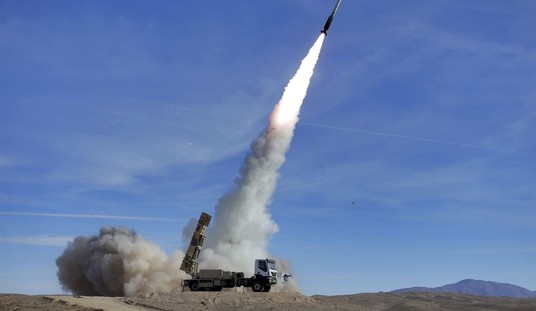There’s been a huge buzz over Obama’s essentially unfunny jokes featuring lipstick on a pig and stinky old fish. The question: did he or didn’t he mean the jabs to refer to Sarah Palin? Only Barack Obama knows for sure, and he’s not telling.
But even if we assume the most benign explanation — that he meant to allude to the McCain campaign in general and not Palin in particular — the crowd’s quick and delighted whoop of laughter at his remarks indicates many listeners saw them as a dig at Palin. Palin’s earlier joke about pit bulls and lipstick had gotten such widespread coverage that the connection was immediate and visceral.
One can only conclude that either Obama knew exactly what association he was conjuring up (in which case his judgment should be questioned), or he was unaware of what should have been glaringly obvious to him (in which case his judgment should be questioned). For a man who is supposed to be both intelligent and sensitive, he seems to have become profoundly tone-deaf.
The race for the U.S. presidency is one of the longest and toughest in the world, a marathon of travel, speech making, handshaking, interviews, and close scrutiny of every utterance by critics eager to pounce on errors real or imagined. It takes an exceptional person to want to be president in the first place. But it takes an even more extraordinary one to stand up to the rigors of the campaign, both physical and mental.
It’s a remarkably grueling process that ends up grinding down all those who are not made of the toughest steel. This assures us that whoever becomes POTUS is probably exhausted by the time he or she takes the oath of office. But the whole thing is also good practice — and an excellent proving ground — for the long tough slog that is the presidency itself.
A contender’s demeanor and stamina in the campaign can tell us a great deal about his or her grace and judgment under pressure. And in this respect, Obama looks more and more like a man who is not holding up as well as he should be. This is odd, because his youth ought to give him a special advantage in this regard.
But for whatever reason, Obama seems to have been subject from the first to fatigue — and to complaining about it. In May of 2007, he attributed a careless error of his — stating that 10,000 people had died in Kansas tornadoes instead of twelve — to weariness. This was striking because it occurred so early in the campaign, when he would have been expected to be fresh and energetic.
Much has been made of McCain’s propensity for anger, and it was the subject of constant early speculation. When would the famous McCain temper make its appearance, and how bad would the melt-down be? The race isn’t over yet and anything is still possible. But the fact that it has failed to materialize so far is an indication that McCain is holding up surprisingly well under the strain.
In February of 1972, when Democratic presidential candidate Edmund Muskie broke down in frustration because of false accusations directed against him by the Manchester Union Leader, it was the end of his campaign. There is still some argument as to whether he actually cried, or whether the moisture that was seen on his face was merely snowflakes melting on his cheeks in the cold New Hampshire winter.
Tears or not, Muskie’s emotional state was clear, and it was perceived as being inappropriately intense and close to being out of control. He was seen as being too weak and too volatile — and perhaps even too unstable — to be president.
This may seem unfair, and perhaps it was. Standards in these matters have changed enough so that Hillary Clinton’s more recent tearing up (also in New Hampshire, by the way) is there something about the state that fosters weeping?) was seen as humanizing her rather than being an emotional liability.
But that’s probably because we had already perceived her as steely, first as a betrayed and humiliated first lady and later as a cool campaigner. Obama is different; every utterance and move must be studied intently and given greater weight because it gives us clues about the fortitude of a man relatively new to the public eye.
There’s an old warhorse of a verse by Rudyard Kipling called “If.” It falls far short of being great poetry but it’s the sort of thing children used to be given to memorize in grade school in order to build character. But many of its lines are remarkably appropriate for explaining the requirements needed to thrive in the crucible that is a presidential campaign, and then a presidency:
If you can keep your head when all about you
Are losing theirs and blaming it on youIf you can trust yourself when all men doubt you,
But make allowance for their doubting too …If you can dream — and not make dreams your master;
If you can think — and not make thoughts your aim;
If you can meet with Triumph and Disaster
And treat those two impostors just the same …
If Obama’s star seems to be fading, it may be due at least in part to his reactions to the situation of finding himself suddenly behind in the polls, threatened by opponents he previously underestimated. It is a question of character, stamina, and judgment. He doesn’t seem to be “keeping his head” now that he is being tested in this new way.
And if McCain seems to be ascendant, it just may be in part because his convention speech highlighted the fact that in his five years as prisoner of war he survived one of the toughest tests of all — not without great difficulties, but ultimately intact. Or, in the words of a different verse of the same Kipling poem:
If you can force your heart and nerve and sinew
To serve your turn long after they are gone,
And so hold on when there is nothing in you
Except the Will which says to them: ‘Hold on!’
It may seem unfair that America demands almost superhuman strength of its presidents. But if we do, it’s only because the job requires it.









Join the conversation as a VIP Member